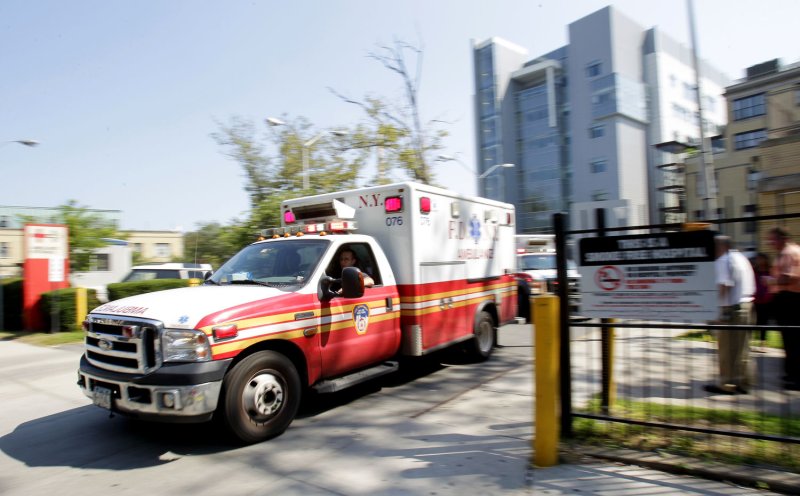If physicians are shown the price of some diagnostic laboratory tests, they order fewer or lower-priced alternatives, but this only applies to inexpensive tests, not expensive tests such as an MRI. UPI/John Angelillo |
License Photo
BALTIMORE, April 18 (UPI) -- If physicians are shown the price of diagnostic tests, they order fewer or lower-priced tests, but this applies only to inexpensive tests, U.S. researchers say.
Dr. Leonard S. Feldman of The Johns Hopkins University School of Medicine said hospitals typically keep both patients and providers essentially blind to the cost of medical services, a system that wastefully contributes to the astronomical cost of U.S. healthcare.
"We generally don't make decisions based on what is cost-effective or what is known to be absolutely necessary for our patients, but knowing the cost of things appears to make us more thoughtful about what we think might be best for their health," Feldman said in a statement. "There's a lot of waste in medicine because we don't have a sense of the costs of much of what we do."
Feldman and colleagues identified 62 diagnostic blood tests frequently ordered. Dividing the tests into two groups, they made sure prices were attached to one group over a six-month period and left out the pricing information for the other group.
The study, published in the journal of Internal Medicine, found a nearly 9 percent reduction in tests when the cost was revealed as well as a 6 percent increase in tests when no price was given. The net charge reduction was more than $400,000 over six months.
"In the end, we ordered fewer tests, saved money and saved patients from extra needle sticks without any negative outcomes," Feldman said in a statement.
For example, the price of a comprehensive metabolic panel -- a blood test that checks fluid and electrolyte status, kidney and liver function, blood sugar levels and response to various medications -- was given as $15.44, but a basic metabolic panel, which checks many of the same things but not liver function, is cheaper, Feldman said.
Previous research found the most expensive diagnostic tests continued to be ordered regardless of whether price was noted because these are often very specialized tests, there aren't alternatives and the information is vital to a diagnosis. In addition, an MRI typically needs to be ordered once per patient per hospital stay, Feldman said.
"The total cost of cheaper tests dwarfs the cost of expensive tests, which are ordered less frequently," Feldman said.
Senior author Dr. Daniel J. Brotman of the Johns Hopkins University School of Medicine acknowledged talking about medical decision-making based on cost is often considered taboo in the profession, a slippery slope to rationing care. But making medical decisions without even considering cost has contributed to skyrocketing healthcare spending and waste, Brotman said.















